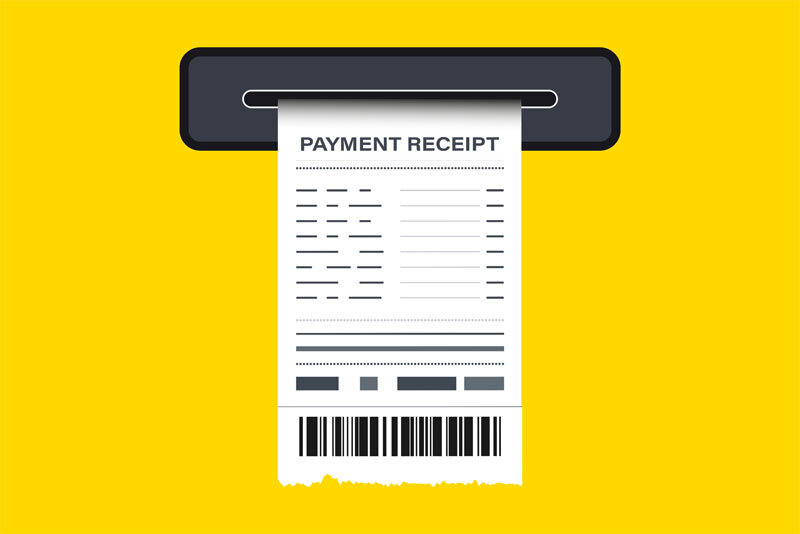Before a retailer or service provider can open for business, they first must get approval from the state for sales tax registration. Not all states charge sales tax, and not all products and services are taxable, so it’s essential to learn the facts before you find yourself in compliance hot water. Here’s what to know about your business’s responsibilities regarding the collection of sales taxes.
Sales Tax Vary by State and Sometimes by County
Currently, forty-five states and the District of Columbia collect statewide sales taxes, while five states do not have a statewide sales tax. The states not collecting sales tax include Alaska, Delaware, Montana, New Hampshire, and Oregon, although Alaska does allow localities to charge local sales taxes.
Local sales tax rates are usually determined at the county level. In all, 38 U.S. states allow localities to set their own sales tax rates, with the highest rates in Tennessee, Louisiana, Arkansas, Washington, and Alabama.
Whether the product you are selling or the service you are offering is deemed taxable depends on a few factors, such as:
- The type of product or service
- Your business location
- Your customer’s location
In general, products are taxable, but states can declare some items (e.g., prescriptions and food) to be tax-exempt. Increasingly, states are taxing services, too, so check with the department of revenue in the states where you own or plan to establish a business.
Importantly, states also vary on which specific location factors affect the collection of sales taxes. State tax rates may be based on the origin or destination of where the product or service is sold or a combination of both.
Understanding Sales Tax Nexus
Sales tax nexus is the link between the seller and state that requires the seller to register, collect, and remit sales tax in the state. Having a physical presence, such as an office, store, or warehouse, in the state establishes nexus; however, economic activity without a physical presence might also constitute a nexus. For example, suppose your business sells through Amazon to a customer in California, and your products are distributed through one of Amazon’s warehouses in California. In that case, you have nexus in California and must collect the California sales tax from the customer and pay the state.
Nearly every state has enacted nexus laws that affect remote sellers, including online marketplaces like Amazon. Most have threshold mandates and require sales tax nexus for companies with more than 200 sales transactions or $100,000 of sales within the state annually.
Registering for Sales Tax
The steps to register with a state for tax collection include visiting the state’s Department of Revenue website, finding the sales and use tax section (or “new business activity”), and entering your company’s business information, such as:
- Principals’ social security numbers
- Principals’ driver license numbers
- Email address
- Federal tax ID number (EIN)
- For Corporations: corporate name, corporate number, state, and date incorporated
- Name, address and phone number of partner(s), corporate officer(s), member(s) or manager(s)
- Name(s) and phone number(s) of personal references
- Name(s) and address(es) of supplier(s)
- North American Industry Classification System (NAICS) code
- Standard Industrial Classification (SIC)
- Bank Information (name and address)
- Name and account number of the merchant credit card processor
- Name, address, and phone number of the person(s) who maintains the books and records
- If you purchased the business, name and contact information for the previous business owner
After you apply for your sales tax registration (and pay any required fees or deposits), ask the state if you are required to apply for any other relevant business licenses or permits. Find out if you need a Certificate of Authority, seller’s permit, or resale certificate.
Doing Business in Another State
If a state you do business in has deemed you have nexus and are required to collect sales tax, your business will also have to register for foreign qualification.
What is a foreign qualification? Foreign qualification is the procedure of registering a company in another state to conduct business. The exact definition of “doing business” varies by state, but typically, most states consider the following as business activities necessitating foreign qualification:
- The business has a physical presence (office space, warehouse, or retail store) in the state
- The business conducts in-person meetings with clients or customers in the state
- The business is structured as a limited liability company (LLC), corporation, or limited partnership (LP)
- The business has employees living/working in the state
- You’ve reached a sales threshold in that state
In addition, limited liability companies (LLCs) and corporations (like a C corporation or S corporation) are considered “domestic” only in their state of formation, so both structures are required to foreign qualify in any other state in which they conduct business.
You may find states want foreign qualification before you can apply for a sales permit or sales tax registration, so be sure and check each state’s requirements.
Once you foreign qualify, you’ll also need to appoint a registered agent to accept your company’s service of process. Assigning an authorized registered agent is necessary to keep your business legally compliant and maintain good standing in the state(s) in which you operate.
CorpNet is Here to Help
CorpNet is here to help you register for sales and use tax! We’ll explain what your state or local government requires and we’ll file all the proper paperwork for you. This allows you to begin collecting sales tax and also allows you to focus on growing your business. The service is of minimal cost and it saves you hours and hours or research and paperwork.





